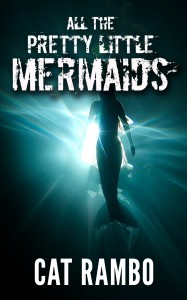
Daniel Abraham came out with the most recent of his Dagger and Coin series, The Widow’s House, and it was just as enjoyable as the first three. Abraham has a gift for flawed characters that you care deeply about, whose dilemmas rack the reader to the heart even when they’re doing despicable things.
Carol Berg’s Dust and Light. Carol consistently hits it out of the ballpark when it comes to epic fantasy, and this start to a trilogy is no exception. If you like Sanderson, Martin, or Bujold’s fantasy, you will like Carol Berg.
The Hole Behind Midnight by Clinton Boomer is terrific urban fantasy with a highly original protagonist. Think of a mash-up of Jim Butcher’s The Dresden Files with the Tyrion Lannister sections of Game of Thrones and Salman Rushdie’s Midnight’s Children and you’re in the general vicinity.
M.L. Brennan manages urban fantasy outside the tired norm with Iron Night, the latest in her Generation V series. I will admit, her kitsune character has me totally captivated, but the vampires manage not to be cliche, and protagonist Fortitude Scott is wonderful, reminding me of Rob Thurman’s engaging Caliban series.
Stephen Brust and Skyler White’s The Incrementalists is urban fantasy taken in a different direction, with an ancient society intent on nudging humanity along in the right directions.
Harry Connolly’s Twenty Palaces series is still more urban fantasy. There’s only four of them, and I wish it were twenty-four. I really enjoy the flavor and wonderful, terrible magic that fills this books. Great stuff.
I reviewed Gardner Dozois and George R.R. Martin’s Dangerous Women for Cascadia Subduction Zone and found it overall satisfying, particularly pieces by Megan Lindholm and Carrie Vaughn.
Caren Gussoff’s The Birthday Problem. Seattle and a plague of madness-inducing nanobots? Sign me up. This is a terrific short novel that should be kept in mind for award ballots.
M.C.A. Hogarth’s The Mindhealer’s Series, Mindtouch and Mindline, were lovely, charming reads about a friendship between two disparate but equally compassionate healers. Looking forward to more in this series. Also recommended: Even the Wingless (looking forward to that serial as well.)
Kameron Hurley’s The Mirror Empire, the first volume of the Worldbreaker Saga. Beautiful fantasy with all sorts of wonderful world-building detail and absolutely gripping characters. Highly recommended, and another to keep in mind for award ballots.
Elliott Kay’s Poor Man’s Fight and Rich Man’s War. I love books with an economic underpinning to them, and this far future military SF delivers wonderfully. Sometimes the villain is almost a little too cartoony, but if you take it as space opera, it’s pretty wonderful.
Meilan Miranda’s Son in Sorrow is the engaging second volume of her An Intimate History of the Greater Kingdom. There’s a level of intrigue and sexuality to these books that reminds one of Jacqueline Carey’s Kushiel books, with equally deft prose and dialogue.
Linda Nagata’s The Red: First Light was terrific military SF/political thriller with lots of engaging detail and a solid dash of cyberpunk. Good stuff, highly recommended.
Tom Perrotta’s The Leftovers is lovely, and significantly better (imo) than the HBO series. It has a wonderful poetry to it that i will match against any lit fic by Paul Auster or T.C. Boyle.
Sofia Samatar’s A Stranger in Olondria was beautiful, reminding me at times of LeGuin’s Earthsea books. Samatar is burning up the charts lately with awards, and this was no exception.
Jeff VanderMeer’s Southern Reach Trilogy is tremendous. Often unsettling, eerie, and always striking, like playing a massive multi-player game where no one else is logged on. Highly recommended, also award ballot material. Wayne read these while we were in Costa Rica and liked them just as much
I also reviewed Jo Walton’s My Real Children and What Makes This Book So Great for CSZ, and really enjoyed the heck out of both, though I know I’ll come back to the second much more than the first. As an inveterate re-reader, it’s highly satisfying to read someone else’s account and analysis of the practice, and I emerged from the book with both a to-read and a to-reread list. WMTBSG is highly, highly recommended for fellow genre re-readers.
Andy Weir’s The Martian was engaging as heck because of its protagonist, who is one of the most likable main characters I have ever encountered. A man is trapped on Mars – will he escape? It’s been done before, but rarely so well.
I greatly enjoyed the first of Django Wexler’s flintlock fantasy, , and the second, The Shadow Throne, was equally enjoyable. Engaging POVs that remain tightly controlled and well-plotted.
If you haven’t read the stories and essays in all three Women Destroy… anthologies, they’re well worth checking out. Christie Yant edited Women Destroy Science Fiction, Ellen Datlow edited Women Destroy Horror, and I edited Women Destroy Fantasy.









One Response